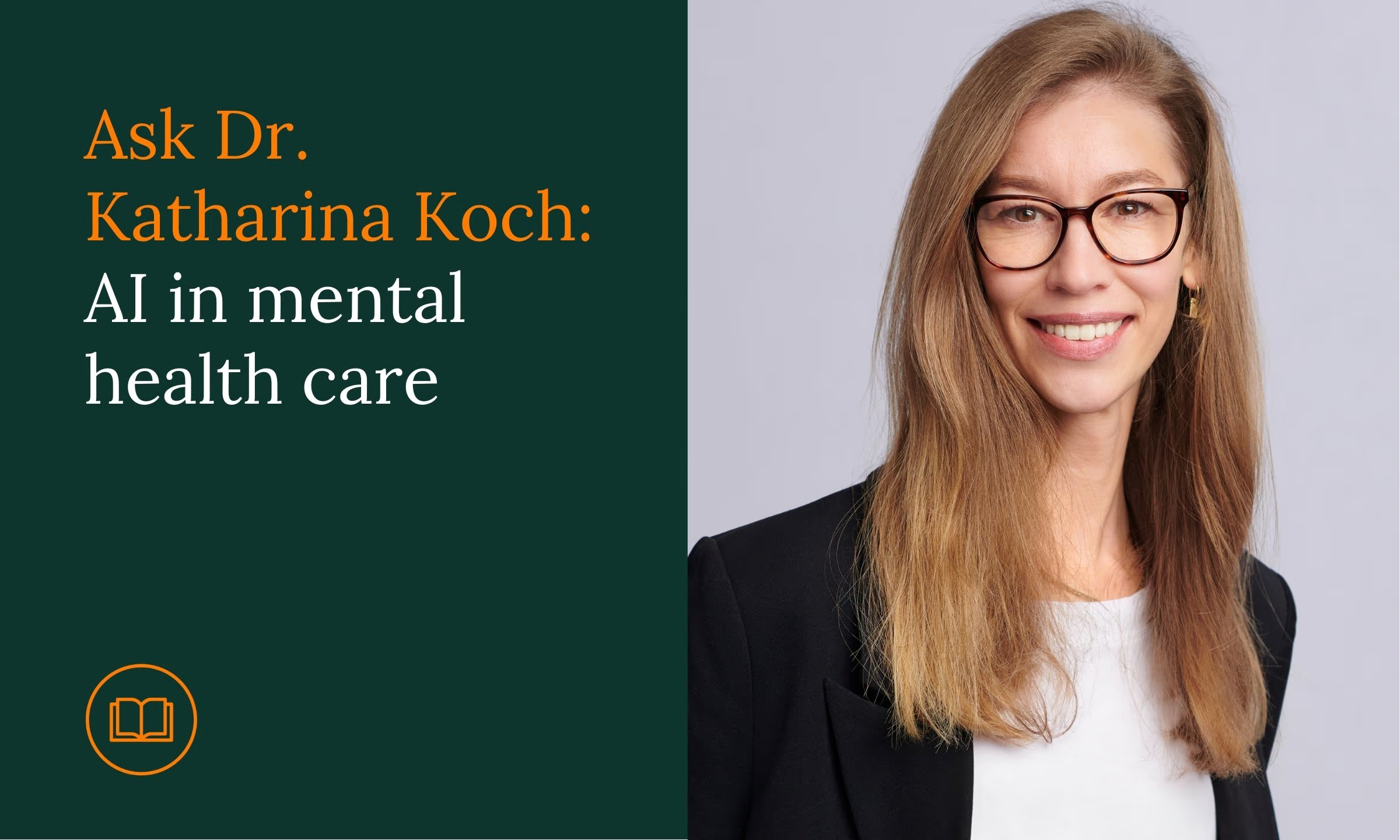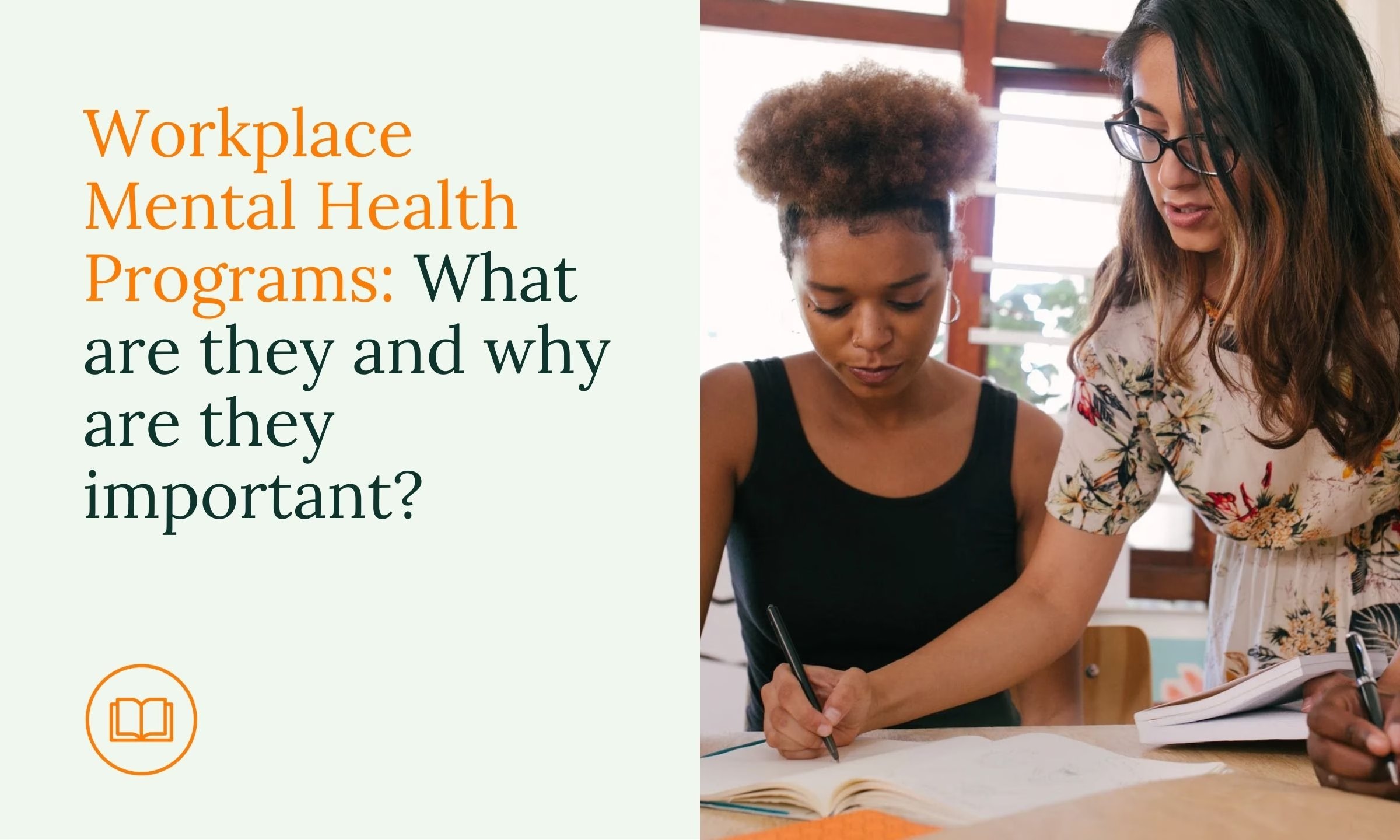Everything you need to know about work, mental health, and HR – from an expert. Join us in our series with Dr. Katharina Koch, a Clinical Psychologist certified in Cognitive Behavioral Therapy and Head of Psychology here at nilo.health. In this edition Katharina will answer frequently asked questions about using AI in mental health care.
How do you feel about AI being used in mental health care?
What are some potential uses you see for AI?
Why do we need to be careful when we use and implement AI?

AI is a contentious topic. How do you feel about AI being used in mental health care and support in the future?
I’m excited! Obviously, as an industry we need to be careful when we utilize any new technology, especially one as creative and powerful as AI. But AI also offers an extraordinary opportunity to enhance mental health support services, including here at nilo.health.
AI can offer personalized support at scale and improve accessibility. We can complement human expertise with data-driven insights to tailor these services for every individual. But of course, it’s crucial to approach AI with ethical considerations and ensure this new technology augments the human touch, rather than replacing it.
What are some potential uses you see for AI?
Too many people have, sadly, experienced the inaccessibility of mental health treatment. For every person who is able to speak to a psychologist, there are hundreds (if not thousands!) of people who either cannot find a psychologist, cannot make it through the long waiting queues and processes in their location to be assigned one, cannot afford one, or do not realize they need one!
AI could make this a lot simpler by taking on huge amounts of the processing and evaluating work required to create functioning mental health care systems.
By analyzing electronic health records, blood tests, brain images, questionnaires, voice recordings, behavioral signs, self-assessments and more, AI could make processing and assigning patients much simpler.
It could help dismantle some of those enormous financial and bureaucratic barriers toward getting the treatment people need. And it could help provide treatment plans and much more post-diagnosis.
Why do we need to be careful when we use and implement AI in mental health care?
AI is creative and generative and still learning. That means that, despite what we might think about robots, it has the capacity to make mistakes! For example, AI bias occurs when inaccuracies or imbalances in the datasets used to train algorithms create unreliable predictions or perpetuate social prejudices.
Another concern is the risk of privacy issues. Sensitive information is confidential when we’re treating mental health issues, and the relationship between a therapist and their patient is the cornerstone of confidentiality and trust. But when personal experiences transform into data, as AI works in the field of mental health, there’s a much greater risk of data breaches, leaks, misuse and even potential commodification. As such we need the highest of data security measures when we implement any AI tool, and we also need to carefully consider the ethical implications of doing so.
AI still needs to be carefully monitored and trained, especially when dealing with anything as delicate and crucial as mental health. And that’s what we’re doing at nilo.health, ensuring our rollout is thorough and expertly tested, every step of the way.







